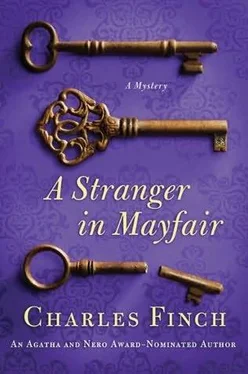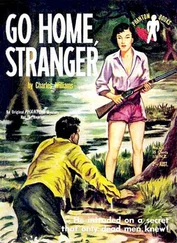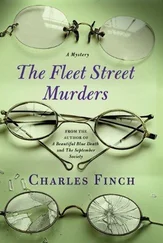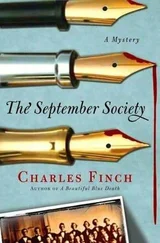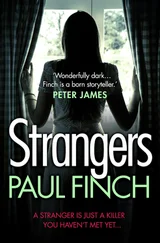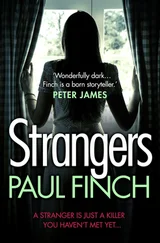Charles Finch - A Stranger in Mayfair
Здесь есть возможность читать онлайн «Charles Finch - A Stranger in Mayfair» весь текст электронной книги совершенно бесплатно (целиком полную версию без сокращений). В некоторых случаях можно слушать аудио, скачать через торрент в формате fb2 и присутствует краткое содержание. Жанр: Исторический детектив, на английском языке. Описание произведения, (предисловие) а так же отзывы посетителей доступны на портале библиотеки ЛибКат.
- Название:A Stranger in Mayfair
- Автор:
- Жанр:
- Год:неизвестен
- ISBN:нет данных
- Рейтинг книги:3 / 5. Голосов: 1
-
Избранное:Добавить в избранное
- Отзывы:
-
Ваша оценка:
- 60
- 1
- 2
- 3
- 4
- 5
A Stranger in Mayfair: краткое содержание, описание и аннотация
Предлагаем к чтению аннотацию, описание, краткое содержание или предисловие (зависит от того, что написал сам автор книги «A Stranger in Mayfair»). Если вы не нашли необходимую информацию о книге — напишите в комментариях, мы постараемся отыскать её.
A Stranger in Mayfair — читать онлайн бесплатно полную книгу (весь текст) целиком
Ниже представлен текст книги, разбитый по страницам. Система сохранения места последней прочитанной страницы, позволяет с удобством читать онлайн бесплатно книгу «A Stranger in Mayfair», без необходимости каждый раз заново искать на чём Вы остановились. Поставьте закладку, и сможете в любой момент перейти на страницу, на которой закончили чтение.
Интервал:
Закладка:
The younger man nodded guiltily. “Yes.”
“It’s bad-very bad. Not so much that you lied, though you ought to deplore any action of the sort, but that you have a-a friendship with a suspect.”
“A suspect!” cried Dallington. “Surely not!”
“Not a very likely one, of course-but certainly she had the opportunity, and she knew the alley well enough to find that loose brick. The weapon.”
“But-but motive!”
Dallington looked pale, and Lenox decided he had been hard enough on the lad. “It’s unlikely, as I say. Almost impossible. Still, it was unprofessional of you.”
“I don’t get paid,” said Dallington miserably. “I’m not a professional.”
“It’s not so bad. Look-we’re here. Wait, before we go on we must think for a moment. Hold here a second, sir, and it’s a shilling for you,” he called out to the cabman.
“What is it?” asked Dallington.
“Well, only this-do we believe Collingwood murdered Frederick Clarke? Or that he attacked Ludo Starling?”
“It certainly seems likelier now.”
“Let’s take this as part of your education, John. Think! Why would Collingwood have attacked Ludo Starling? How could it have benefited him?”
Dallington frowned. “Perhaps Starling knew Collingwood had killed Clarke?”
“Then why on earth wouldn’t Ludo have told us? All he wants is for this scandal to end!”
“Still, you must admit Starling is acting peculiarly.”
“There! That’s certainly true. We have to think about his motivations in all this. But then, listen-is there anything strange about what Collingwood hid?”
“What?”
“Even granting that he may have had a green butcher’s apron-which I feel far from sure of-why would he have worn it?”
“To keep the blood off?”
“Fair point. Still, I find it a singular piece of evidence. Then, last of all, the larder.”
“Well?”
Lenox shrugged. “Why choose a place in the house so closely associated with himself? Besides which certainly Collingwood isn’t the only person with a key.”
“Ludo!”
“That’s one. Or, for that matter, another member of the family whom we’ve both observed at the trough.”
“Alfred-but why on earth would he attack his father?”
“I don’t say he did, just that he may have had a key, somehow, and if so he may have lost it-misplaced it-given it away. Anything.”
“It’s true.”
Lenox stepped out and paid the driver. “Bear that in mind as we interview Collingwood. If we have a chance to, that is.”
“I doubt he’ll still be here.”
Dallington was right. They saw Ludo, who looked heartily sick of them, and he recapitulated briefly what they already knew.
“Do you believe Collingwood was capable of murdering Frederick Clarke?” Lenox asked.
“I don’t know, to be honest. Look, I’m late for a game of whist.”
“The Turf?”
“No, we’re playing at the house of a chap I know. I must be off.”
“How’s your leg?”
“My leg? Ah, that-it’s painful but healing, thanks.”
When they had walked a block away, Dallington said to Lenox, “Maybe we should go to the Turf.”
“His club?”
“We agree that his behavior is strange. Shall we see whether he was playing cards during the time Frederick Clarke was killed?”
The Turf was a very new club-it had been founded in 1861-but already a very exclusive one among the younger generations. The game that had taken London by storm in the past several years, whist, had actually been invented there and then certified by the much older Portland Club, a more staid place where the game of choice was generally contract bridge. The Turf had a comfortable house in Bennett Street in Picadilly, with many small rooms for cardplaying, a fine cellar full of wines, and a notably discreet staff. Many of the surfaces in the building, the doors, chairs, and tables included, were embossed with the club’s emblem, a centaur.
Dallington, who was a member, asked the porter if he could look through the sign-in book, passing him a coin; everyone who entered the Turf, member or guest, had to sign the book. After they had signed it themselves he and Lenox looked back to the date when Ludo had been playing cards. “For ten hours or more,” Lenox recalled him saying, or something like that. It wasn’t at all uncommon for these games of cards to go on for days, with players dropping in and out to eat or sleep for a few hours, and then returning to see a mix of old and new faces at the table.
Ludo’s name wasn’t in the book.
They checked the date twice, and for good measure each day on either side. “There, Frank Derbyshire,” said Lenox. “That was the group he said he was with.”
“He was lying!”
“He might have been. Or he might simply have walked in with a crowd and not bothered to wait around for his turn to sign the book. Still, it is suspicious, I’ll grant you that.”
“This is it!” said Dallington excitedly. “Ludo is involved, even if we don’t know how!”
“Patience. Let’s go see Frank Derbyshire.”
Dallington flipped to the front of the club book and studied the names on the most recent page. “We may not need to leave the building,” he said after a moment. “Derbyshire signed in an hour ago.”
Chapter Twenty-Four
There were servants stationed at the door of every card room that was in use, in case the players needed a fresh cigar, or a cutlet to eat during play. Dallington, who knew many of the servants by name quietly asked each whether Frank Derbyshire was there. The third one said yes.
Derbyshire, an ugly, carrot-haired, very rich young man, was annoyed at the disruption. “What in damnation is it, Dallington?” he said. “I don’t owe you a cent, and there are no places at the table. Monty Kibble is ahead thirty pounds, and I’ll be damned to hell if he isn’t cheating. I need to get back in there and catch him.” A moody puff on his cigar.
“It’s not about cards.”
“Well, what else is there?”
Lenox smiled, then realized it wasn’t a joke.
“Ludovic Starling,” said Dallington, whom they had agreed would be the one to speak to Derbyshire.
“Who’s that?”
“Ludo-”
“No, this gentleman.”
“Ah. This is my friend Charles Lenox. Lenox, Frank Derbyshire.”
“Lenox the detective? That’s right, you are, too, Dalls,” said Derbyshire, giving them a nasty grin. “Playing about at bobby?”
Something happened then that shocked Lenox: For a single moment Dallington’s face showed a mix of shame and hurt that was piercing. He covered it with a sardonic laugh. Suddenly Lenox understood the cost to his pupil of this occupation: dismissed for so long because he didn’t work, because he drank and played, and now dismissed because he did work.
Dallington went on, “Did you play cards with Starling recently?”
“Yes, strangely enough. He usually plays with an older set, doesn’t like the university crowd down here on the second floor. But he wanted a game and got one, by God. I took him for eight pounds and a halfpenny.”
The impeccable memory of the gambler, thought Lenox. “How long did you play for?” he asked. “Ten hours, was it?”
Derbyshire snorted, and then something from the snort caught in his throat and he coughed horribly on his cigar smoke, hacking for what seemed like an entire minute. At last, eyes watery, he gasped out, “Never!”
“How long, then?”
He was still hoarse. “Couldn’t have been more than four hours.”
“What day?”
“Would have been about a week ago. It was eight days, in fact, I remember.”
The day of the murder.
“What happened?”
Читать дальшеИнтервал:
Закладка:
Похожие книги на «A Stranger in Mayfair»
Представляем Вашему вниманию похожие книги на «A Stranger in Mayfair» списком для выбора. Мы отобрали схожую по названию и смыслу литературу в надежде предоставить читателям больше вариантов отыскать новые, интересные, ещё непрочитанные произведения.
Обсуждение, отзывы о книге «A Stranger in Mayfair» и просто собственные мнения читателей. Оставьте ваши комментарии, напишите, что Вы думаете о произведении, его смысле или главных героях. Укажите что конкретно понравилось, а что нет, и почему Вы так считаете.
